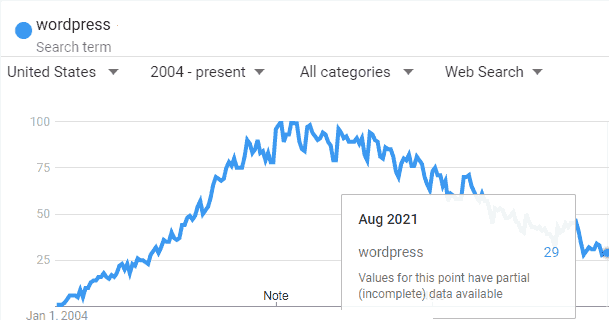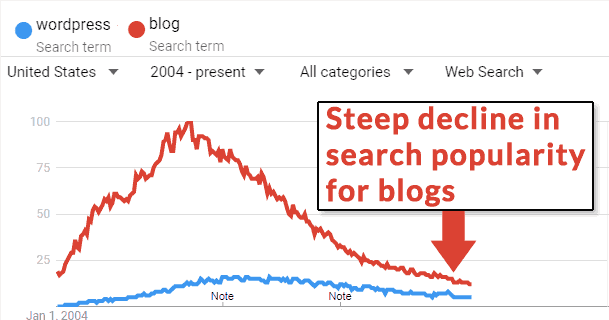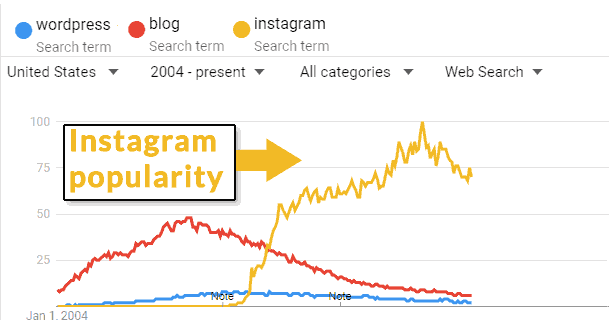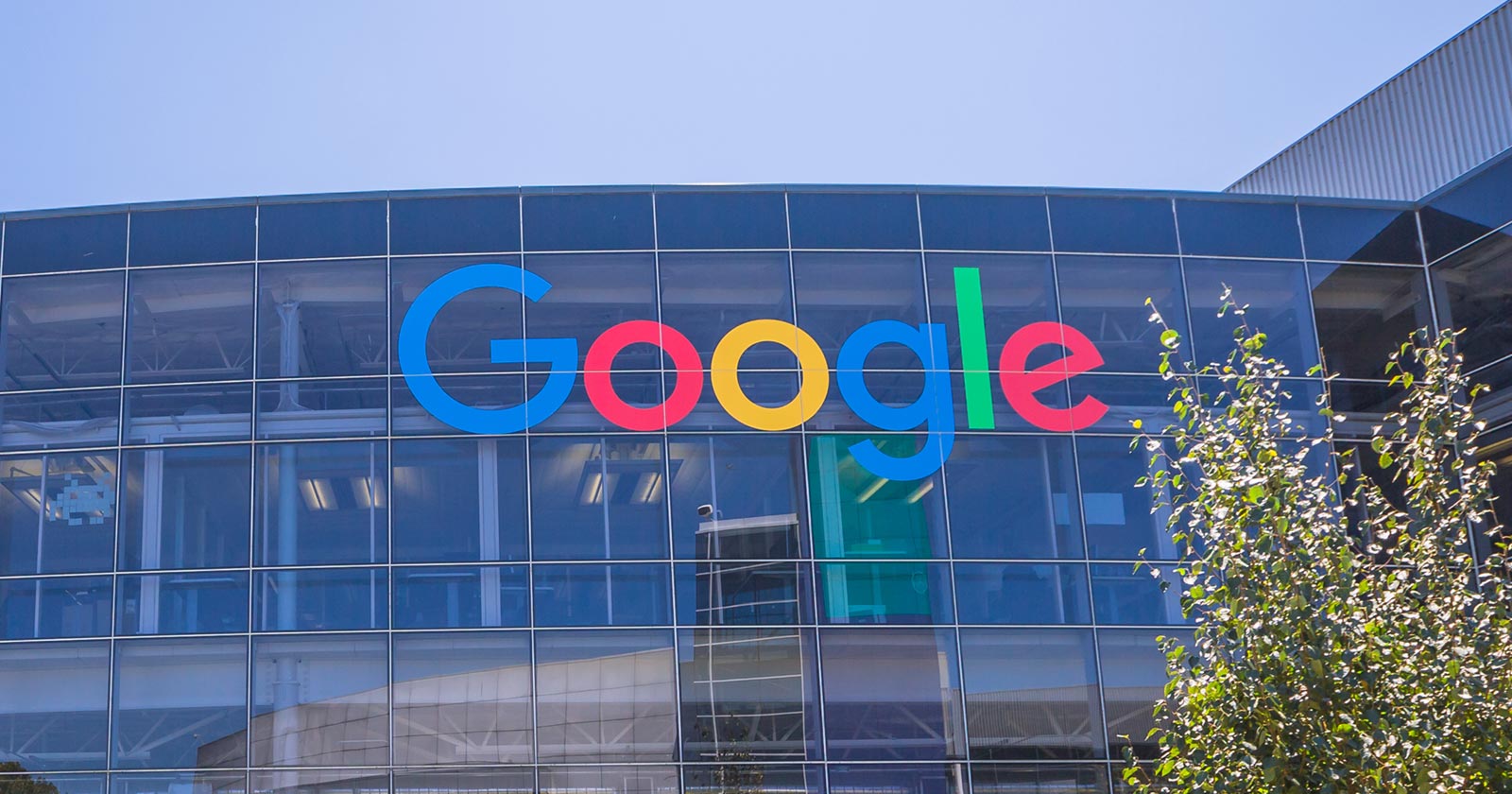SEO
7 Insights Into How Google Ranks Websites via @sejournal, @martinibuster
Google’s algorithm is built around understanding content and search queries and making the answers accessible to users in the most convenient manner.
These seven insights show how to develop a winning SEO and content strategy by leveraging what we know about Google’s algorithms.
The following are insights developed by studying patents and research papers published by Google itself.
Insight 1: Follow the Correct Intent
There are some content writing systems that mine the top-ranked websites and provide content writing and keyword suggestions based on the analysis of the top ten to top thirty webpages.
Some people who have used the software have told me that the information isn’t always helpful. And that’s not surprising because mining all of the top-ranked webpages in any given search results page (SERP) is going to result in a noisy data set that’s inaccurate and is of limited usefulness.
One of the issues with identifying user intent is that almost every query contains multiple user intents.
Advertisement
Continue Reading Below
Google solves this problem by showing links to webpages about the most popular user intents first.
For example, in a research study about automatically classifying YouTube channels (PDF), the researchers discuss the role of user intent in determining which results to show first.
In the below quote, where it uses the word “entity,” it’s a reference to what you normally think of as a noun (a person, a place, or a thing):
“A mapping from names to entities has been built by analyzing Google Search logs, and, in particular, by analyzing the web queries people are using to get to the Wikipedia article for a given entity…
For instance, this table maps the name Jaguar to the entity Jaguar car with a probability of around 45 % and to the entity Jaguar animal with a probability of around 35%.”
In plain English, that means researchers discovered that 45% of people who search for Jaguar are looking for information about the automobile and 35% are looking for information about the animal.
Advertisement
Continue Reading Below
That’s user intent that is segmented by popularity.
The takeaway here is that if your content is about selling a product and the top-ranked pages are about how to make that product then it may be possible that the popular user intent for that keyword is how to make that product and not where to buy that product.
That insight may mean that new content is needed to target the underlying “how to make” latent question that is inherent in that search query.
Insight 2: Link Ecosystem Has Changed
Blogging was at an all-time high twelve years ago. Many people were going online to churn out content and link out to interesting websites.
Aside from the recipe niche, that is no longer the case and that may be affecting the link signal that Google uses for ranking purposes. This is super important to think about.
Fewer People Searching for WordPress
There are fewer and fewer people searching for WordPress every year. This indicates that WordPress is declining in popularity in the general population.
The search volume for the keyword “WordPress” has declined by 71% since September 2011.
 Screenshot from Google Trends, September 2021
Screenshot from Google Trends, September 2021
Fewer People Searching for Blogs
It’s not just WordPress usage that is going down. There are also fewer people searching for blogs, with a pattern that mirrors the decline in searches for WordPress.
 Screenshot from Google Trends, September 2021
Screenshot from Google Trends, September 2021
The Link Ecosystem in Decline
There may be many reasons why blogging has declined in popularity.
It could be social media or it could be the introduction of the iPhone and Android changed how the public interacts online.
 Screenshot from Google Trends, September 2021
Screenshot from Google Trends, September 2021
The Link Ecosystem Has Declined
One thing that is indisputable is that fewer people are blogging and the link ecosystem has suffered a strong decline. What caused it is beside the point.
Advertisement
Continue Reading Below
Gary Illyes of Google confirmed that the motivation for turning the nofollow link attribute directive into a hint was so that Google can use those links for ranking purposes.
“Yes. They had been missing important data that links had, due to nofollow. They can provide better search results now that they consider rel=nofollowed links into consideration.”
It’s not unreasonable to consider the use of nofollow links for ranking purposes was done because there are fewer natural links being generated.
With fewer links being naturally generated, it is highly likely that it’s going to affect how websites are ranked and that Google would be increasingly selective about the links it uses.
Today, it is increasingly clear that link strategies that rely on blog links are more easily detected as spam since fewer people are creating blogs.
The takeaway here is that when creating a link building strategy, it’s important to be aware that the link ecosystem is in decline.
Advertisement
Continue Reading Below
That means that freely given natural links are also in decline.
Link strategies must be more creative in terms of identifying who is left linking to websites and understanding why they are linking to websites.
Takeaway About Links
The time for being selective about getting links from so-called “authority” sites is long past.
Get what you can get as long as it is natural and freely given by any relevant website.
Insight 3: Link Drought Link Building Strategy
Because there are fewer natural links being freely given it’s time to rethink the race to obtain the right anchor text and massive amounts of links.
While a freely given link with a relevant anchor text is useful it’s rarely going to happen naturally.
So maybe it’s time to move away from old traditional link building focused on anchor text and guest posting (which today means paid links).
Instead, it may be useful to cultivate links from news and magazines, relevant organizations, and some educational organizations.
Advertisement
Continue Reading Below
Now more than ever it’s time to focus on outreach regardless of whether the outreach results in links. Just take the traffic.
Insight 4: Search Results Show What People Want to See
Ever walk down a supermarket cereal aisle and note how many sugar-laden kinds of cereal line the shelves? That’s user satisfaction in action. People expect to see sugar bomb cereals in their cereal aisle and supermarkets satisfy that user intent.
I often look at the Fruit Loops on the cereal aisle and think, “Who eats that stuff?” Apparently, a lot of people do, that’s why the box is on the supermarket shelf – because people expect to see it there.
Google is doing the same thing as the supermarket. Google is showing the results that are most likely to satisfy users, just like that cereal aisle.
Sometimes, that means showing newbie 101 level answers. Sometimes that means showing something incredibly racist and sad.
For example, in 2009, Google had to apologize for showing an image of Michelle Obama that was altered to resemble a monkey every time someone searched on her name.
Advertisement
Continue Reading Below
Why did Google show that result? Because most people searching on the name Michelle Obama were the kind of people who were satisfied seeing an image of her that resembled a monkey.
Click-through rates and other metrics of user satisfaction indicated that’s what people wanted to see. So Google’s user intent algorithm gave it to them.
Remember those sugar-laden cereals in the supermarket? That’s what those kinds of results are. It’s what I refer to as a “Fruit Loops algorithm,” a popularity-based algorithm that gives users what they expect to see.
Satisfying user intent is what Google means when they talk about showing relevant results. In the old days, it meant showing webpages that contained the keywords that a user typed. Now it means showing the webpage that most users expect to see.
Essentially, the search results pages are similar to the cereal aisle at your supermarket. That’s not a criticism, it’s an observation.
Advertisement
Continue Reading Below
I think it’s useful to think of the search results as a supermarket aisle and considering what kind of “cereal” is most popular. It may influence your content strategy in a positive way.
Insight 5: Expand the Range of Content
Google’s search results are biased to show the content that users expect to see.
This is why Google shows YouTube videos in the search results. It’s what people want to see.
It’s why Google shows featured snippets, it’s what satisfies the most people today who use mobile phones.
It’s not entirely accurate to complain that Google’s search results favor YouTube videos. People find video content useful, particularly for the how-to type of content. That’s why Google shows it.
It’s a bias in the search results, yes. But it’s a reflection of the users’ bias, not Google’s bias.
So if the user has a bias that favors YouTube videos, what should your online strategy response be?
Advertisement
Continue Reading Below
Write more content and build links to it? Or is the proper response to shift to the kind of content users want, in this case, video?
So if you see the search results are favoring a certain kind of content, pivot to producing that kind of content.
Learn to read the room in terms of what users want by paying close attention to what Google is ranking.
Insight 6: Drops in Ranking and NLP
Drops in ranking can sometimes be explained by a shift in how Google interprets what users mean when they search for something.
Google is increasingly using Natural Language Processing (NLP) algorithms which influences what Google believes users want when they search for something.
For example, I witnessed a near rewrite of what kind of content ranked at the top in a certain niche. Informational content zipped to the top, commercial content dropped to the bottom of the top 10.
There was nothing wrong with the commercial sites that dropped, other than how Google understood user intent changed.
Advertisement
Continue Reading Below
Trying to “fix” the commercial sites by adding more links, disavowing links, or adding more keywords to the page is unlikely to help the rankings.
Fixing something that isn’t broken never helps.
That’s why sometimes, it’s a good idea to study the search results first when diagnosing why a site lost ranking.
There might not be anything to fix. But there may be changes needing to be considered.
If your site has dropped in rankings, review what Google is ranking.
If the kinds of sites still ranking feature different content (focus, topic, etc) then the reason why your site dropped may not be about something that’s wrong.
It may be about something that needs changing.
Insight 7: Click Data Helps Determine User Intent
This is why I use the phrase “Fruit Loops Algo” to refer to Google’s user-intent-focused algorithm. It’s not meant as a slur. It’s meant to illustrate the reality of how Google’s search engine works.
Advertisement
Continue Reading Below
Many people want Fruit Loops and Captain Crunch breakfast cereals. The supermarkets respond by giving consumers what they want.
Search algorithms can operate in a similar manner.
A Better Definition of Relevance
That’s not keyword relevance to search terms you’re looking at — it’s relevance to what most users are expecting to see.
Sometimes that is expressed in how many links a site receives.
But I’m fairly confident that one of the ways user intent is understood is by click log data.
Here’s a patent filed by Google that discusses using click data to understand user intent, Modifying Search Result Ranking Based on Implicit User Feedback .
“Internet search engines aim to identify documents or other items that are relevant to a user’s needs and to present the documents or items in a manner that is most useful to the user. Such activity often involves a fair amount of mind-reading—inferring from various clues what the user wants.
…user reactions to particular search results or search result lists may be gauged, so that results on which users often click will receive a higher ranking. The general assumption under such an approach is that searching users are often the best judges of relevance, so that if they select a particular search result, it is likely to be relevant, or at least more relevant than the presented alternatives.”
Advertisement
Continue Reading Below
Understanding user intent is so important that Google and other search engines have developed eye-tracking and viewport time technologies to measure where on a search result mobile users are lingering. This helps to measure user satisfaction and understand user intent for mobile users.
Is Google or the User Biased Toward Brands?
Some people believe that Google has a big brand bias. But that’s not it at all.
If you consider this in light of what we know about Google’s algorithm and how it tries to satisfy user intent, then you will understand that if Google shows a big brand it’s because that is what users expect to see.
If you want to change that situation then you must create a campaign to build awareness for your site so that users begin to expect to see your site at the top.
Yes, links play a role in that. But other factors such as what users type into search engines also play a role.
Advertisement
Continue Reading Below
Someone once argued that Google should show results about the river when someone typed Amazon into Google. But that is unreasonable if what most people expect to see is Amazon the shopping site.
Again, Google is not matching keywords in that search query. Google is identifying the user intent and showing users what they want to see.
Key Takeaways
Understand the Search Results
The 10 links are not ordered by which page has the best on-page SEO or the most links. Those 10 links are ordered by user intent.
Write for User Intent
Understand what users want to accomplish and make that the focus of the content. Too often publishers write content focused on keywords, what some refer to as “semantically rich” content.
In 2015 I published an article about User Experience Marketing in which I proposed that focusing on user intent will put you in line with how Google ranks websites.
•What user intent is the content satisfying?
•What task or goal is the content helping the site visitor accomplish?”
Advertisement
Continue Reading Below
Understand Content Popularity
Content popularity is about writing content that can be understood by the widest audience possible. That means paying attention to the minimum grade level necessary for understanding your content.
If the grade level is high, this means your content may be too difficult for some users to understand.
I am not saying that Google prefers sites that a sixth-grader can understand. I am only stating that if you want to make your site easily understood by search engines and the most users, then paying attention to the difficulty of your content may be useful.
Google is not a keyword-matching search engine. Google is arguably a User Intent Matching Engine. Knowing and understanding this will improve everyone’s SEO.
There is a profound insight into understanding this and adapting your search marketing strategy to it.
Use What Is Known About Google’s Ranking Algorithms
Google publishes an astonishing amount of information about the algorithms used to rank websites. There are many other research papers that Google does not acknowledge whether or not the technology is in use.
Advertisement
Continue Reading Below
One can level up their SEO and marketing success by knowing what algorithms Google has admitted to using and what kinds of algorithms have been researched.
More Resources:
Featured image: Master1305/Shutterstock
SEO
Google On Hyphens In Domain Names

Google’s John Mueller answered a question on Reddit about why people don’t use hyphens with domains and if there was something to be concerned about that they were missing.
Domain Names With Hyphens For SEO
I’ve been working online for 25 years and I remember when using hyphens in domains was something that affiliates did for SEO when Google was still influenced by keywords in the domain, URL, and basically keywords anywhere on the webpage. It wasn’t something that everyone did, it was mainly something that was popular with some affiliate marketers.
Another reason for choosing domain names with keywords in them was that site visitors tended to convert at a higher rate because the keywords essentially prequalified the site visitor. I know from experience how useful two-keyword domains (and one word domain names) are for conversions, as long as they didn’t have hyphens in them.
A consideration that caused hyphenated domain names to fall out of favor is that they have an untrustworthy appearance and that can work against conversion rates because trustworthiness is an important factor for conversions.
Lastly, hyphenated domain names look tacky. Why go with tacky when a brandable domain is easier for building trust and conversions?
Domain Name Question Asked On Reddit
This is the question asked on Reddit:
“Why don’t people use a lot of domains with hyphens? Is there something concerning about it? I understand when you tell it out loud people make miss hyphen in search.”
And this is Mueller’s response:
“It used to be that domain names with a lot of hyphens were considered (by users? or by SEOs assuming users would? it’s been a while) to be less serious – since they could imply that you weren’t able to get the domain name with fewer hyphens. Nowadays there are a lot of top-level-domains so it’s less of a thing.
My main recommendation is to pick something for the long run (assuming that’s what you’re aiming for), and not to be overly keyword focused (because life is too short to box yourself into a corner – make good things, course-correct over time, don’t let a domain-name limit what you do online). The web is full of awkward, keyword-focused short-lived low-effort takes made for SEO — make something truly awesome that people will ask for by name. If that takes a hyphen in the name – go for it.”
Pick A Domain Name That Can Grow
Mueller is right about picking a domain name that won’t lock your site into one topic. When a site grows in popularity the natural growth path is to expand the range of topics the site coves. But that’s hard to do when the domain is locked into one rigid keyword phrase. That’s one of the downsides of picking a “Best + keyword + reviews” domain, too. Those domains can’t grow bigger and look tacky, too.
That’s why I’ve always recommended brandable domains that are memorable and encourage trust in some way.
Read the post on Reddit:
Read Mueller’s response here.
Featured Image by Shutterstock/Benny Marty
SEO
Reddit Post Ranks On Google In 5 Minutes

Google’s Danny Sullivan disputed the assertions made in a Reddit discussion that Google is showing a preference for Reddit in the search results. But a Redditor’s example proves that it’s possible for a Reddit post to rank in the top ten of the search results within minutes and to actually improve rankings to position #2 a week later.
Discussion About Google Showing Preference To Reddit
A Redditor (gronetwork) complained that Google is sending so many visitors to Reddit that the server is struggling with the load and shared an example that proved that it can only take minutes for a Reddit post to rank in the top ten.
That post was part of a 79 post Reddit thread where many in the r/SEO subreddit were complaining about Google allegedly giving too much preference to Reddit over legit sites.
The person who did the test (gronetwork) wrote:
“…The website is already cracking (server down, double posts, comments not showing) because there are too many visitors.
…It only takes few minutes (you can test it) for a post on Reddit to appear in the top ten results of Google with keywords related to the post’s title… (while I have to wait months for an article on my site to be referenced). Do the math, the whole world is going to spam here. The loop is completed.”
Reddit Post Ranked Within Minutes
Another Redditor asked if they had tested if it takes “a few minutes” to rank in the top ten and gronetwork answered that they had tested it with a post titled, Google SGE Review.
gronetwork posted:
“Yes, I have created for example a post named “Google SGE Review” previously. After less than 5 minutes it was ranked 8th for Google SGE Review (no quotes). Just after Washingtonpost.com, 6 authoritative SEO websites and Google.com’s overview page for SGE (Search Generative Experience). It is ranked third for SGE Review.”
It’s true, not only does that specific post (Google SGE Review) rank in the top 10, the post started out in position 8 and it actually improved ranking, currently listed beneath the number one result for the search query “SGE Review”.
Screenshot Of Reddit Post That Ranked Within Minutes
Anecdotes Versus Anecdotes
Okay, the above is just one anecdote. But it’s a heck of an anecdote because it proves that it’s possible for a Reddit post to rank within minutes and get stuck in the top of the search results over other possibly more authoritative websites.
hankschrader79 shared that Reddit posts outrank Toyota Tacoma forums for a phrase related to mods for that truck.
Google’s Danny Sullivan responded to that post and the entire discussion to dispute that Reddit is not always prioritized over other forums.
Danny wrote:
“Reddit is not always prioritized over other forums. [super vhs to mac adapter] I did this week, it goes Apple Support Community, MacRumors Forum and further down, there’s Reddit. I also did [kumo cloud not working setup 5ghz] recently (it’s a nightmare) and it was the Netgear community, the SmartThings Community, GreenBuildingAdvisor before Reddit. Related to that was [disable 5g airport] which has Apple Support Community above Reddit. [how to open an 8 track tape] — really, it was the YouTube videos that helped me most, but it’s the Tapeheads community that comes before Reddit.
In your example for [toyota tacoma], I don’t even get Reddit in the top results. I get Toyota, Car & Driver, Wikipedia, Toyota again, three YouTube videos from different creators (not Toyota), Edmunds, a Top Stories unit. No Reddit, which doesn’t really support the notion of always wanting to drive traffic just to Reddit.
If I guess at the more specific query you might have done, maybe [overland mods for toyota tacoma], I get a YouTube video first, then Reddit, then Tacoma World at third — not near the bottom. So yes, Reddit is higher for that query — but it’s not first. It’s also not always first. And sometimes, it’s not even showing at all.”
hankschrader79 conceded that they were generalizing when they wrote that Google always prioritized Reddit. But they also insisted that that didn’t diminish what they said is a fact that Google’s “prioritization” forum content has benefitted Reddit more than actual forums.
Why Is The Reddit Post Ranked So High?
It’s possible that Google “tested” that Reddit post in position 8 within minutes and that user interaction signals indicated to Google’s algorithms that users prefer to see that Reddit post. If that’s the case then it’s not a matter of Google showing preference to Reddit post but rather it’s users that are showing the preference and the algorithm is responding to those preferences.
Nevertheless, an argument can be made that user preferences for Reddit can be a manifestation of Familiarity Bias. Familiarity Bias is when people show a preference for things that are familiar to them. If a person is familiar with a brand because of all the advertising they were exposed to then they may show a bias for the brand products over unfamiliar brands.
Users who are familiar with Reddit may choose Reddit because they don’t know the other sites in the search results or because they have a bias that Google ranks spammy and optimized websites and feel safer reading Reddit.
Google may be picking up on those user interaction signals that indicate a preference and satisfaction with the Reddit results but those results may simply be biases and not an indication that Reddit is trustworthy and authoritative.
Is Reddit Benefiting From A Self-Reinforcing Feedback Loop?
It may very well be that Google’s decision to prioritize user generated content may have started a self-reinforcing pattern that draws users in to Reddit through the search results and because the answers seem plausible those users start to prefer Reddit results. When they’re exposed to more Reddit posts their familiarity bias kicks in and they start to show a preference for Reddit. So what could be happening is that the users and Google’s algorithm are creating a self-reinforcing feedback loop.
Is it possible that Google’s decision to show more user generated content has kicked off a cycle where more users are exposed to Reddit which then feeds back into Google’s algorithm which in turn increases Reddit visibility, regardless of lack of expertise and authoritativeness?
Featured Image by Shutterstock/Kues
SEO
WordPress Releases A Performance Plugin For “Near-Instant Load Times”

WordPress released an official plugin that adds support for a cutting edge technology called speculative loading that can help boost site performance and improve the user experience for site visitors.
Speculative Loading
Rendering means constructing the entire webpage so that it instantly displays (rendering). When your browser downloads the HTML, images, and other resources and puts it together into a webpage, that’s rendering. Prerendering is putting that webpage together (rendering it) in the background.
What this plugin does is to enable the browser to prerender the entire webpage that a user might navigate to next. The plugin does that by anticipating which webpage the user might navigate to based on where they are hovering.
Chrome lists a preference for only prerendering when there is an at least 80% probability of a user navigating to another webpage. The official Chrome support page for prerendering explains:
“Pages should only be prerendered when there is a high probability the page will be loaded by the user. This is why the Chrome address bar prerendering options only happen when there is such a high probability (greater than 80% of the time).
There is also a caveat in that same developer page that prerendering may not happen based on user settings, memory usage and other scenarios (more details below about how analytics handles prerendering).
The Speculative Loading API solves a problem that previous solutions could not because in the past they were simply prefetching resources like JavaScript and CSS but not actually prerendering the entire webpage.
The official WordPress announcement explains it like this:
Introducing the Speculation Rules API
The Speculation Rules API is a new web API that solves the above problems. It allows defining rules to dynamically prefetch and/or prerender URLs of certain structure based on user interaction, in JSON syntax—or in other words, speculatively preload those URLs before the navigation. This API can be used, for example, to prerender any links on a page whenever the user hovers over them.”
The official WordPress page about this new functionality describes it:
“The Speculation Rules API is a new web API… It allows defining rules to dynamically prefetch and/or prerender URLs of certain structure based on user interaction, in JSON syntax—or in other words, speculatively preload those URLs before the navigation.
This API can be used, for example, to prerender any links on a page whenever the user hovers over them. Also, with the Speculation Rules API, “prerender” actually means to prerender the entire page, including running JavaScript. This can lead to near-instant load times once the user clicks on the link as the page would have most likely already been loaded in its entirety. However that is only one of the possible configurations.”
The new WordPress plugin adds support for the Speculation Rules API. The Mozilla developer pages, a great resource for HTML technical understanding describes it like this:
“The Speculation Rules API is designed to improve performance for future navigations. It targets document URLs rather than specific resource files, and so makes sense for multi-page applications (MPAs) rather than single-page applications (SPAs).
The Speculation Rules API provides an alternative to the widely-available <link rel=”prefetch”> feature and is designed to supersede the Chrome-only deprecated <link rel=”prerender”> feature. It provides many improvements over these technologies, along with a more expressive, configurable syntax for specifying which documents should be prefetched or prerendered.”
See also: Are Websites Getting Faster? New Data Reveals Mixed Results
Performance Lab Plugin
The new plugin was developed by the official WordPress performance team which occasionally rolls out new plugins for users to test ahead of possible inclusion into the actual WordPress core. So it’s a good opportunity to be first to try out new performance technologies.
The new WordPress plugin is by default set to prerender “WordPress frontend URLs” which are pages, posts, and archive pages. How it works can be fine-tuned under the settings:
Settings > Reading > Speculative Loading
Browser Compatibility
The Speculative API is supported by Chrome 108 however the specific rules used by the new plugin require Chrome 121 or higher. Chrome 121 was released in early 2024.
Browsers that do not support will simply ignore the plugin and will have no effect on the user experience.
Check out the new Speculative Loading WordPress plugin developed by the official core WordPress performance team.
How Analytics Handles Prerendering
A WordPress developer commented with a question asking how Analytics would handle prerendering and someone else answered that it’s up to the Analytics provider to detect a prerender and not count it as a page load or site visit.
Fortunately both Google Analytics and Google Publisher Tags (GPT) both are able to handle prerenders. The Chrome developers support page has a note about how analytics handles prerendering:
“Google Analytics handles prerender by delaying until activation by default as of September 2023, and Google Publisher Tag (GPT) made a similar change to delay triggering advertisements until activation as of November 2023.”
Possible Conflict With Ad Blocker Extensions
There are a couple things to be aware of about this plugin, aside from the fact that it’s an experimental feature that requires Chrome 121 or higher.
A comment by a WordPress plugin developer that this feature may not work with browsers that are using the uBlock Origin ad blocking browser extension.
Download the plugin:
Speculative Loading Plugin by the WordPress Performance Team
Read the announcement at WordPress
Speculative Loading in WordPress
See also: WordPress, Wix & Squarespace Show Best CWV Rate Of Improvement
-

 WORDPRESS7 days ago
WORDPRESS7 days ago10 WordPress Influencers to Follow in 2024 – WordPress.com News
-

 SEARCHENGINES7 days ago
SEARCHENGINES7 days agoGoogle Image Search Adds Pixel Level Object Segmentation Animation
-

 MARKETING7 days ago
MARKETING7 days agoFeeling Stuck: What to Do When You Don’t Know What to Do
-

 PPC5 days ago
PPC5 days agoA History of Google AdWords and Google Ads: Revolutionizing Digital Advertising & Marketing Since 2000
-

 SEARCHENGINES6 days ago
SEARCHENGINES6 days agoMore Google March 2024 Core Update Ranking Volatility
-

 PPC6 days ago
PPC6 days agoCompetitor Monitoring: 7 ways to keep watch on the competition
-

 WORDPRESS6 days ago
WORDPRESS6 days agoThrive Architect vs Divi vs Elementor
-

 PPC6 days ago
PPC6 days ago31 Ready-to-Go Mother’s Day Messages for Social Media, Email, & More














